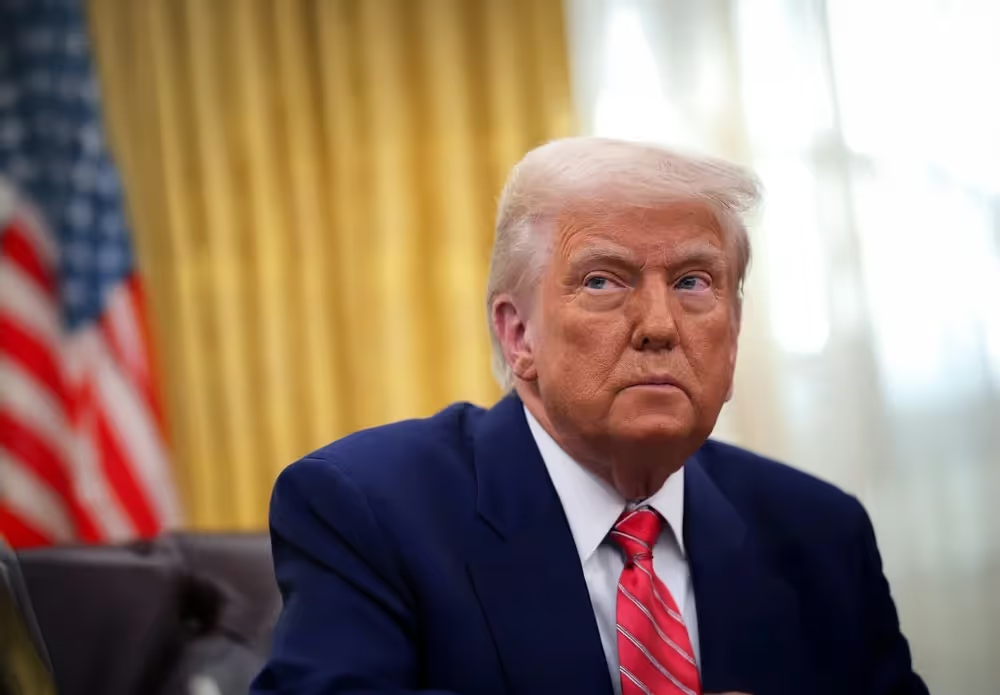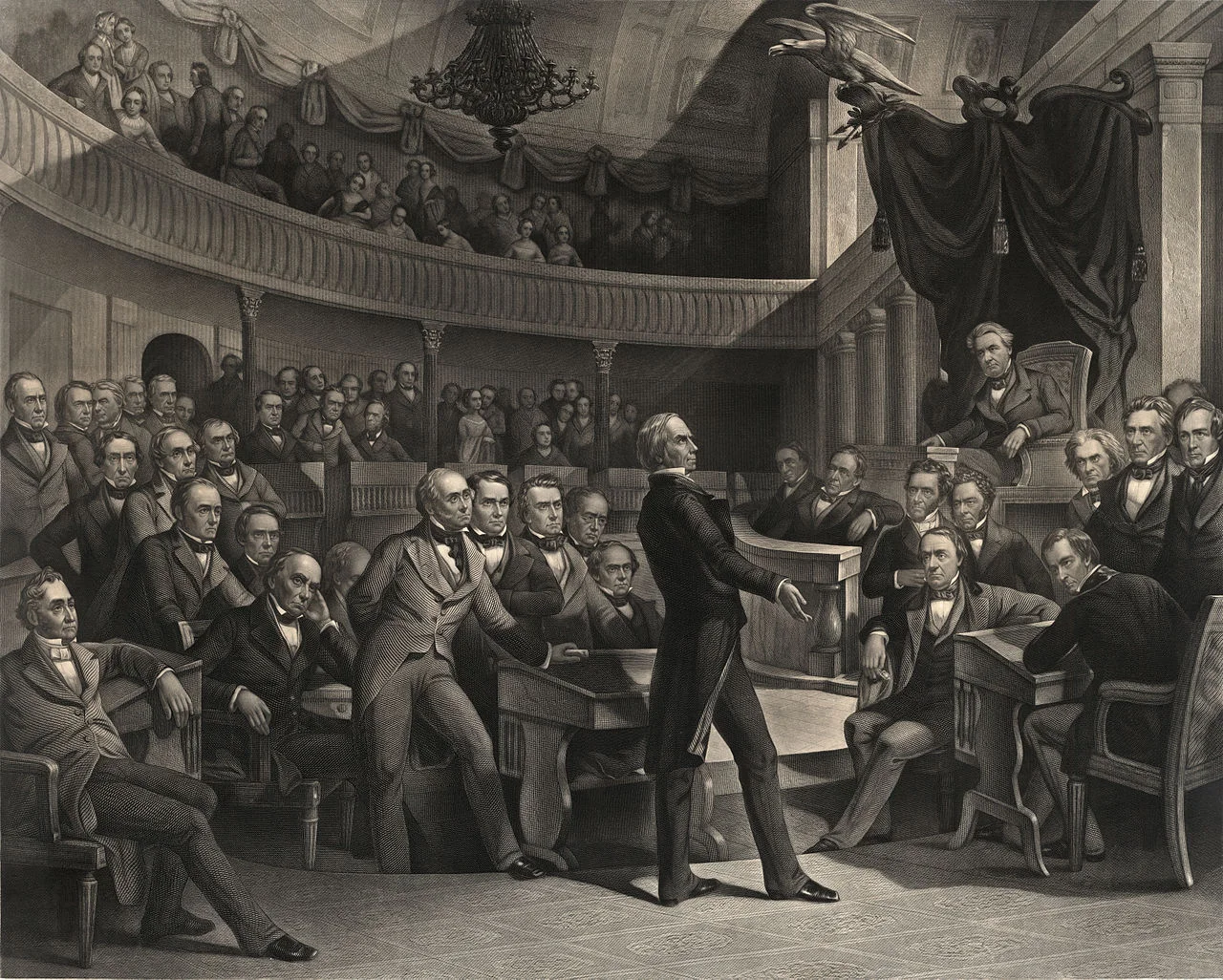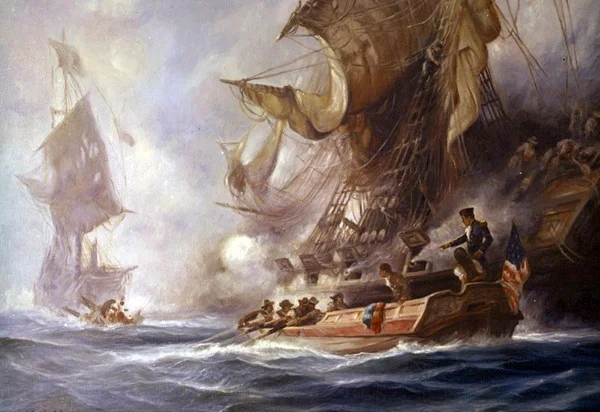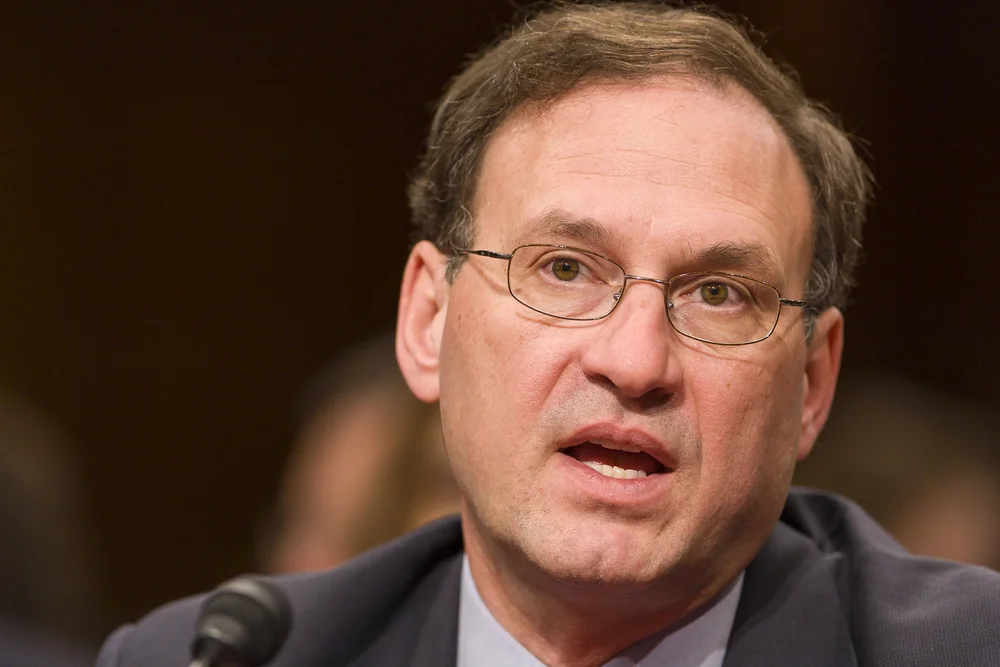
What Could the Supreme Court Rule About Trump's Tariffs?
The Supreme Court must restore the proper framework for exercising economic emergency powers.
The Court of Appeals for the Federal Circuit’s decision striking down the Trump tariffs reached the right result, but for the wrong reasons. If left standing, the precedent will unduly restrict presidential power when a true emergency confronts the United States. The Supreme Court will need to intervene to restore the proper framework for exercising economic emergency powers.
President Trump’s tariffs, in some cases as high as 50 or 100 percent on the imports from some countries, invoke powers delegated by the 1977 International Emergency Economic Powers Act (IEEPA). IEEPA grants the President broad economic powers in the event of a threat from abroad. Upon the declaration of “an unusual and extraordinary [foreign] threat” to our national security, foreign policy, or economy, IEEPA allows the President to “regulate, direct and compel, nullify, void, prevent or prohibit” any foreign transaction, import, or export.
Trump used IEEPA to impose tariffs based on three national emergencies. First, he declared that Mexico had allowed international drug cartels to engage in smuggling illicit drugs, inflicting violent crime, and sustaining gangs. Second, he found that the lax controls at the border had allowed terrorists, traffickers, and gangs to cross the border. Trump used these declarations of national emergency to impose “trafficking tariffs,” in the words of the court, targeted at Mexico, Canada, and China for enabling the illegal flow of opioids into the United States.
Trump’s broadest use of IEEPA, however, came from a third, worldwide emergency: the trade deficit. “Underlying conditions, including a lack of reciprocity in our bilateral trade relationships, disparate tariff rates and non-tariff barriers, and U.S. trading partners’ economic policies that suppress domestic wages and consumption, as indicated by large and persistent annual U.S. goods trade deficits,” Trump found, posed a threat to U.S. national security and the economy. Under this last emergency, Trump overrode the existing schedules and imposed permanent tariffs on almost every imported product from every country in the world. On April 2, he announced that a 10 percent base tariff would be imposed on almost all countries, with an additional 10 to 50 percent tariff applied on an ad hoc basis. The special case presented by Chinese imports resulted in tariffs as high as 125 percent.
IEEPA’s language should easily encompass imposing a tax on imports. No one doubts that the tariffs depend wholly on the statutory authority delegated to the President by Congress. Under Article I of the Constitution, Congress alone has the power to “regulate commerce with foreign nations” and to “lay and collect Taxes, Duties, Imposts and Excises.” Presidents have no independent constitutional authority to impose tariffs or otherwise regulate trade. The Framers understood that the Constitution gave Congress the exclusive power of the purse, encompassing both taxation and spending, with tariffs a subset of this broader authority.
But in IEEPA, Congress delegated this power to the President during times of international emergency. If the President finds an unusual and extraordinary threat from abroad, IEEPA allows him to
investigate, block during the pendency of an investigation, regulate, direct and compel, nullify, void, prevent or prohibit, any acquisition, holding, with-holding, use, transfer, withdrawal, transportation, importation or exportation of, or dealing in, or exercising any right, power, or privilege with respect to, or transactions involving, any property in which any foreign country or a national thereof has any interest by any person, or with respect to any property, subject to the jurisdiction of the United States.
It is difficult to imagine a broader grant of economic power. Indeed, IEEPA had continued the equally broad authority of the 1917 Trading with the Enemy Act, which had given presidents the power to “regulate or prohibit” any foreign transactions in wartime or during a national emergency. Presidents used the TWEA to impose economic sanctions during World Wars I and II, the Korean War, and the Cold War.
Nevertheless, the 7-4 majority of the Federal Circuit in Trump v. VOS Selections, Inc. held that this broad grant of emergency authority did not support any of Trump’s tariffs. “IEEPA’s grant of presidential authority to ‘regulate’ imports does not authorize the tariffs imposed by the Executive Orders,” the Court declared.
The Federal Circuit’s conclusion flies in the face of the clear meaning of the law’s text. IEEPA delegates to the President the power to regulate or prohibit any transaction involving foreign-owned property. An importation of a good or service from abroad falls plainly within Congress’s enactment. IEEPA has long allowed a President to completely block all US trade with another country, such as North Korea, Cuba, or Iran, or to impose economic sanctions, such as on Russia for the Ukraine War.
The greater power must include the lesser power. If the President could cut off all imports from China because it poses a national security threat, he can reduce the amount of imports by using taxes, licenses, quotas or other measures. Suppose the President chose to cut trade off with China by placing quantity limits on imported goods (only so many T-shirts, TVs, and tea) or requiring Chinese companies to buy expensive licenses for the right to import. While their forms may be different, they are all regulations in substance.
The Federal Circuit tries to wiggle out of this statutory straightjacket by arguing that IEEPA doesn’t specifically use the word “tariff” in its grant of power to the President. But this ignores the full statutory text. IEEPA includes the power not just to “prohibit” imports but also to “regulate” them. Regulate must mean a power different than a complete blockade on imports. This should include the power to tax, which is a means to lower imports short of an outright embargo. Indeed, the Constitution’s grant of the power to “regulate” international and interstate commerce does not specify the lesser tools that Congress may use short of an outright ban. Nevertheless, the Supreme Court has permitted a wide range of methods to regulate interstate commerce, including those backed by financial penalties.
VOS Selections seeks to bolster its conclusion by calling upon recent Supreme Court cases paring back the power of the administrative state. In striking down the Biden administration’s effort to cancel student loans or require nationwide Covid vaccinations, for example, the Supreme Court has announced a “major questions doctrine” that counsels against reading vague laws to delegate vast grants of power over major economic or social questions. The major questions doctrine is a canon of statutory construction that protects a more important constitutional principle: that Congress should not delegate too much of its legislative power to the executive (known as the non-delegation doctrine).
But IEEPA is no vague statute. It applies only to emergencies. It vests the President with broad economic powers to meet them. It provides an extensive, even exhaustive, list of powers. Further, the Supreme Court has said clearly that the non-delegation doctrine does not apply in the area of foreign affairs and national security. In U.S. v. Curtiss-Wright (1936), the Supreme Court addressed a law delegating to the President the power to impose an embargo on warring nations. Even though the Court assumed that the law would violate the non-delegation doctrine if it were domestic, it held that the non-delegation doctrine did not apply to foreign affairs. “The powers of the federal government in respect of foreign or external affairs and those in respect of domestic or internal affairs [are] different, both in respect of their origin and their nature,” Justice Sutherland wrote for the majority. “The broad statement that the federal government can exercise no powers except those specifically enumerated in the Constitution, and such implied powers as are necessary and proper to carry into effect the enumerated powers, is categorically true only in respect of our internal affairs.” The Court explained that foreign affairs were fraught with danger and uncertainty and called upon the unique nature of the executive – its speed, unity, and decisiveness. Courts should view delegations to the executive generously as a result.
Judicial deference to the exercise of broad economic emergency powers is not a matter of speculating about the scope of Curtiss-Wright. In Dames & Moore v. Regan (1981), the Supreme Court addressed a similar situation to Trump’s tariffs: a presidential exercise of economic power during an international crisis that seemed to fall within a gap in IEEPA’s broad terms. To execute the agreement releasing the Iranian hostages, the president ordered the suspension of all lawsuits against the Iranian government, the lifting of judicial freezes on Iranian government assets, and the transfer of the cases to a new U.S.-Iran claims tribunal in the Hague. Reagan’s problem was that IEEPA did not provide for the effective cancellation of judicial decisions awarding Iranian assets to American plaintiffs. Nevertheless, the Court upheld the executive orders – it would not allow an unintentional lacuna in IEEPA to prevent the President from taking action he deemed necessary to address a national emergency. “Congress cannot anticipate and legislate with regard to every possible action the President may find it necessary to take,” Justice Rehnquist wrote for the Court. “[E]nactment of legislation closely related to the question of the President’s authority in a particular case which evinces legislative intent to accord the President broad discretion may be considered to ‘invite’ measures on independent presidential responsibility.” Dames & Moore commands courts to approve exercises of economic power in foreign affairs when the law may be silent, because Congress has already explicitly delegated broad authority in the IEEPA.
While the Federal Circuit erred in its reading of IEEPA, it still reached the right result because of a question it strangely avoided. Before the President can access the broad powers in the statute, he must first declare the existence of an “unusual and extraordinary threat, which has its source in whole or substantial part outside the United States, to the national security, foreign policy, or economy of the United States.” It is doubtful that the trade deficit qualifies as an emergency necessary to trigger IEEPA.
“Unusual or extraordinary” indicates that the threat to US foreign policy, national security, or economy must be sudden, unanticipated, or beyond the normal course of affairs. An “unusual” threat might arise from a hostile action by a foreign nation, such as the Iranian hostage crisis, or the outbreak of armed conflict, such as that with Iran. It might even come from war between other countries that has a direct impact on US foreign policy and national security goals, such as Russia’s invasion of Ukraine. An “extraordinary” threat would refer to the magnitude of harm that the US might suffer.
Under this reading of IEEPA, the trade deficit does not rise to the level of an unusual and extraordinary threat. It is not unusual. The trade deficit has existed since the early 1970s. Indeed, as the Court acknowledges, President Richard Nixon imposed temporary across-the-board tariffs more than 50 years ago to try to reduce the trade deficit. The United States has gone through periods of positive and negative trade deficits in its history, just as we have positive or negative trade balances with individual nations even today. A trade deficit that has persisted for five decades is not unusual enough to constitute a national emergency.
Nor has the trade deficit suddenly presented a threat of great magnitude to US foreign policy, national security, or the economy. Today’s trade deficit amounts to nearly $900 billion per year in nominal dollar terms. But as a percentage of gross national product, it was about the same in 2022 as it was about two decades earlier. The trade deficit did not suddenly balloon to unsustainable levels in a year or two. It is not even clear that the trade deficit inflicts serious harm – it is balanced by capital inflows into the U.S. economy from foreigners who must use the dollars they have received for their imports.
One way to think of the limits on emergencies is to compare the trade deficit to climate change. IEEPA should not grant a future President broad economic power to, for example, sanction countries that may do too little to stop fossil fuel emissions, produce goods deemed by environmentalists to be too “dirty,” or don’t cooperate in misguided international agreements. But if “unusual and extraordinary threat” includes the trade deficit, it could plausibly include climate change. Climate change has been occurring for centuries, and results from long-term economic and social dynamics, but a future President could say that it harms the economy enough to justify the declaration of a national emergency. Supporters of Trump’s tariffs would have little grounds on which to oppose a climate change emergency.
The Trump administration will certainly appeal to the Supreme Court. But the Justices may not grant the President the victory he seeks. The High Court could well reverse the cramped reading of IEEPA powers, which future Presidents will need to confront an honest emergency. But the Court could also address the logical prerequisite for those powers – whether an emergency truly exists in the first place. If it does, the Court may still block the Trump tariffs to preserve emergency powers for when Presidents will really need them.
John Yoo is a senior research fellow at the Civitas Institute and the School of Civic Leadership, University of Texas at Austin. He is also the Emanuel Heller Professor of Law at the University of California at Berkeley and a nonresident senior fellow at the American Enterprise Institute. He serves on the board of the Pacific Legal Foundation, which has brought a lawsuit against the Trump tariffs.
Constitutionalism

Amicus Brief: Hon. William P. Barr and Hon. Michael B. Mukasey in Support of Petitioners
Former AGs Barr and Mukasey Cite Civitas in a SCOTUS Brief

Rational Judicial Review: Constitutions as Power-sharing Agreements, Secession, and the Problem of Dred Scott
Judicial review and originalism serve as valuable commitment mechanisms to enforce future compliance with a political bargain.

Supreme Court showdown exposes shaky case against birthright citizenship
Supreme Court will hear challenges to Trump's order ending birthright citizenship, testing the 14th Amendment's guarantee for babies born in America.

Men and Women: Equal but Beautifully Distinct
Powerful interests are being served, but they are not those of young women competing in adolescent sports, or the larger need of our society to know that its words, laws, and public speech conform to the reality that we did not summon into being.

Forging a Political Constitution
Thomas Rives Bell urges that separation-of-powers conflicts between Congress and the Executive branch be regarded as political questions beyond federal court intervention.


.avif)










.avif)



